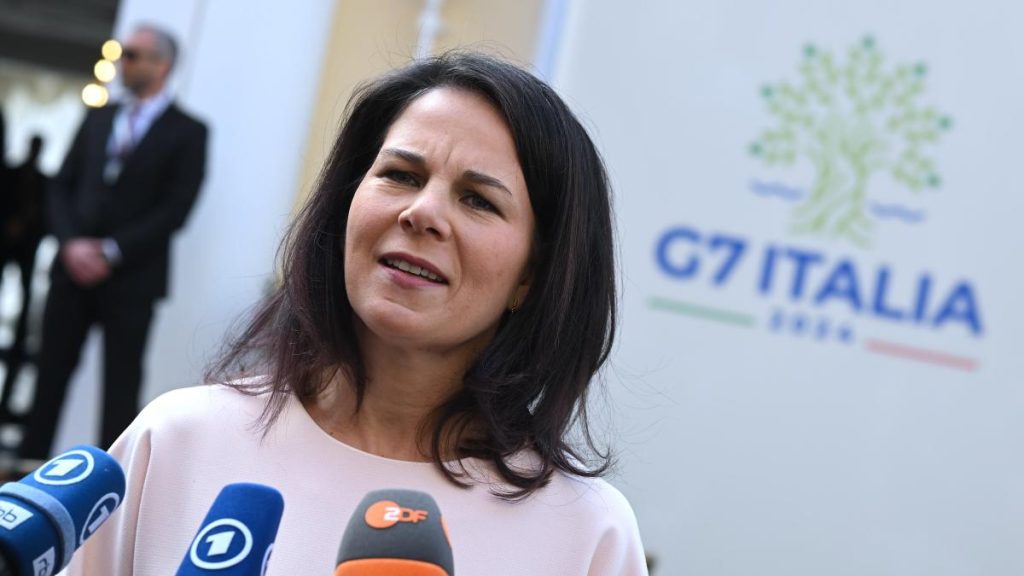The German government is dealing with a new case of suspected Russian espionage as two alleged Russian agents were arrested. In response, Foreign Minister Annalena Baerbock summoned the Russian ambassador to Berlin. Moscow denied the allegations, stating that no evidence of the detainees’ plans or potential ties to Russian structures was provided. The suspects, Dieter S. and Alexander J., were accused of planning sabotage actions to undermine military support from Germany to Ukraine against the Russian invasion. Both men, who hold dual German and Russian citizenship, were detained separately in the Bayreuth area by the Federal Criminal Police Office.
Dieter S. is facing charges of conspiracy to cause an explosion, arson, espionage for sabotage purposes, and endangering the security of military facilities, as well as membership in a foreign terrorist organization and preparing a serious act of violence against the state. He is also suspected of serving as a fighter for an armed unit in the Donetsk People’s Republic in Eastern Ukraine between December 2014 and September 2016. Additionally, one of the suspects had contacts with a Russian intelligence agency through an intermediary and was planning sabotage acts to undermine military support for Ukraine against the Russian aggression. One target of the espionage was a US military facility in Grafenwöhr, where Ukrainian soldiers are trained on Abrams tanks.
The suspects had allegedly planned bomb and arson attacks on military and industrial sites in Germany to undermine support for Ukraine. Dieter S. gathered information on potential targets, including US military installations, with the help of Alexander J. Some of the targeted sites were scouted in person, with photos and videos taken of military transports and goods. The gathered information was then shared with the Russian contact. Dieter S. has been remanded in custody by the Federal Court of Justice, with Alexander J. scheduled to appear before the investigating judge. Politicians from the ruling coalition and the opposition expressed outrage over the espionage case, emphasizing the need to strengthen security measures against such activities and to continue supporting Ukraine.
Bundeskanzler Olaf Scholz condemned the alleged espionage activities in Germany and highlighted the importance of detecting and preventing such threats. Bundesinnenministerin Nancy Faeser praised the security authorities for thwarting potential attacks that could have undermined military assistance to Ukraine. She described the case as a severe instance of alleged espionage for Putin’s regime. Minister of Justice Marco Buschmann emphasized the need for a resolute response to Russian threats directed at Germany, calling the sabotage suspicions alarming. Green Party deputy Konstantin von Notz urged Germany to bolster its defenses against future threats, while CDU foreign policy expert Roderich Kiesewetter warned that Germany is a prime target for Russian influence and espionage operations.
The Gewerkschaft der Polizei (GdP) advocated for enhanced civilian-military cooperation to address security challenges effectively. They stressed the importance of close information sharing between police and military decision-makers, as well as the development of joint situation assessments, scenario solutions, and emergency plans. The espionage case has sparked concerns about broader Russian efforts to undermine support for Ukraine and influence public opinion through disinformation. Politicians and security experts are calling for a more robust and resilient defense posture to counter future threats effectively.















